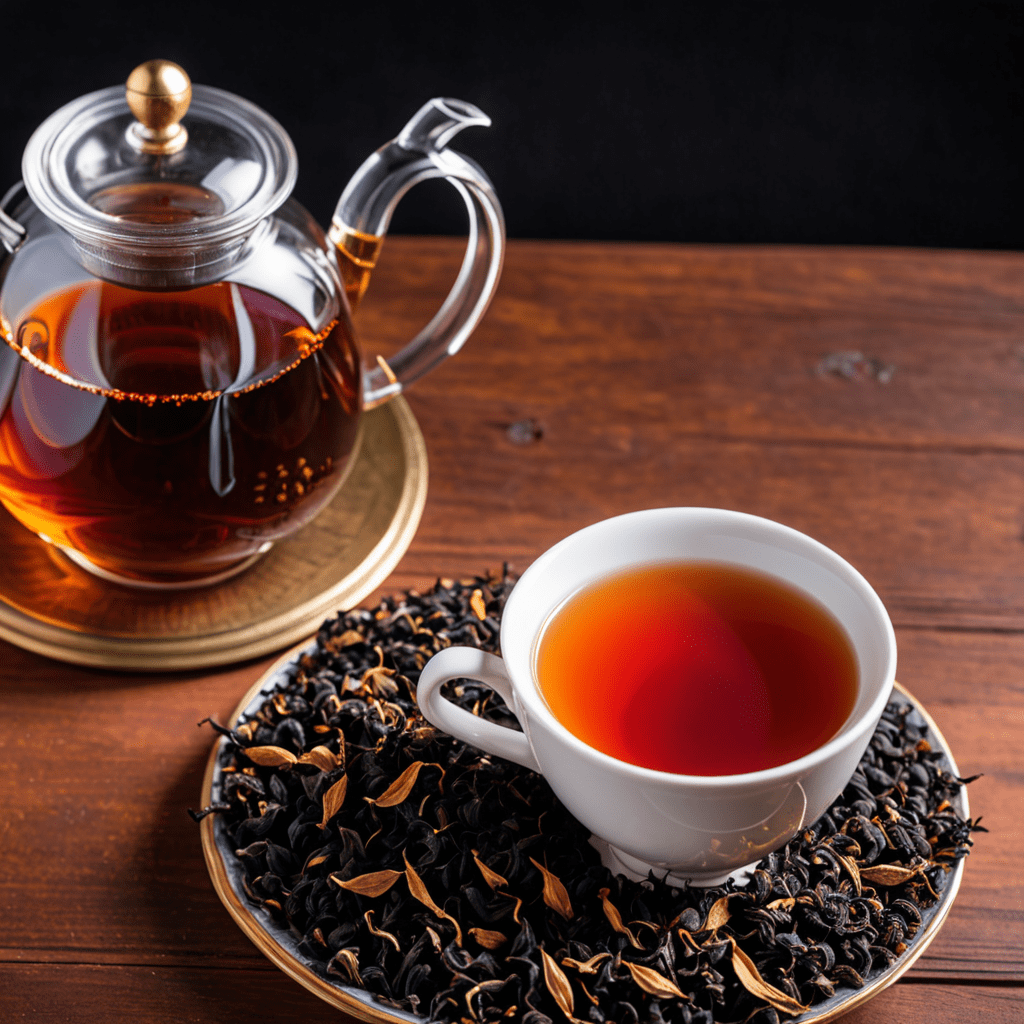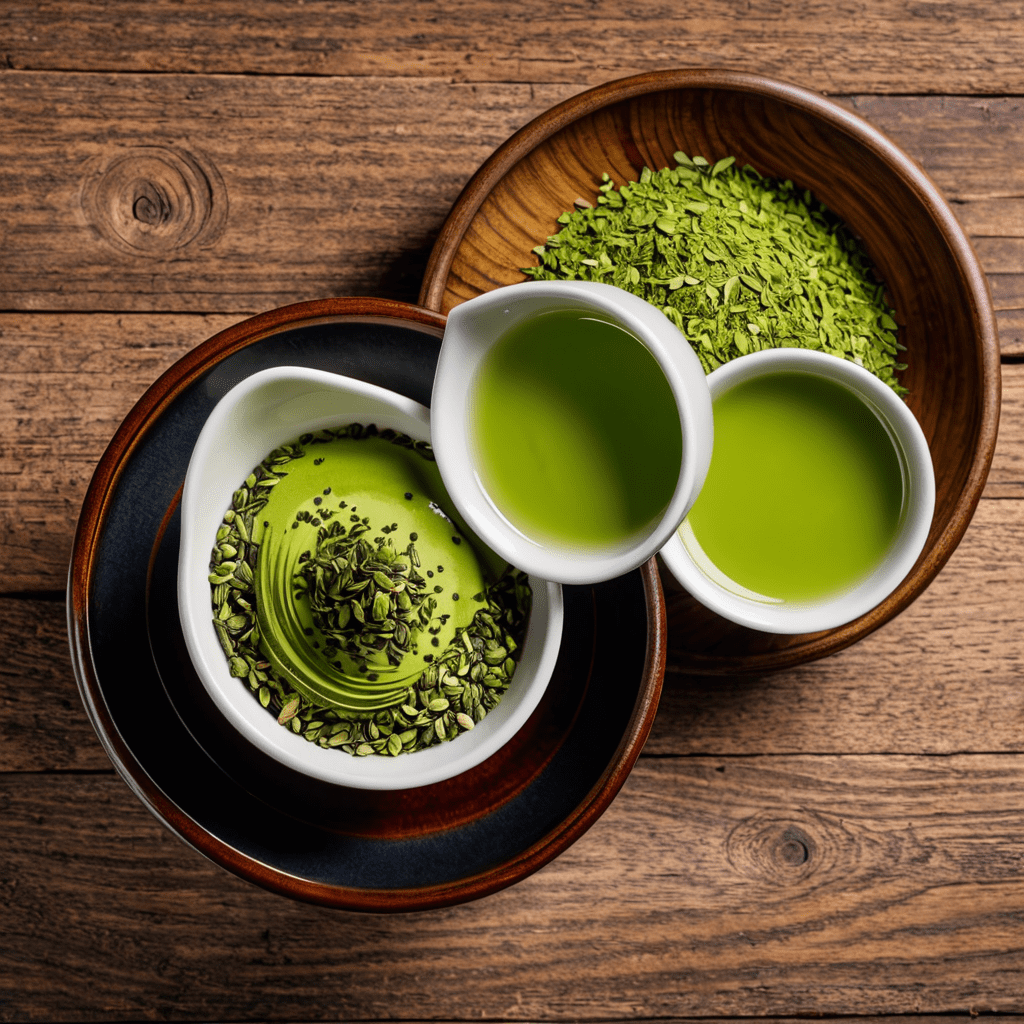Assam Tea: From Leaf to Cup
1. Introduction
Assam tea, renowned for its robust flavor and malty aroma, is a beloved beverage that has graced teacups for centuries. Originating from the verdant hills of Assam, India, this black tea boasts a rich history and a unique journey from leaf to cup.
2. The History of Assam Tea
The origins of Assam tea can be traced back to the 18th century when British explorers discovered tea plants growing wild in the region. Recognizing the potential of this discovery, the British East India Company established tea plantations in Assam, transforming the region into a major tea-growing hub.
3. The Assam Tea Plant
Assam tea is derived from the Assamica variety of the Camellia sinensis plant. This plant is characterized by large, coarse leaves that produce a bold and full-bodied tea. The Assam tea plant thrives in the humid, tropical climate of the Assam region, which provides ideal conditions for its growth.
4. Growing Assam Tea
Assam tea is cultivated in meticulously managed plantations. The tea plants are pruned and fertilized regularly to ensure optimal growth. The use of shade trees helps to create a microclimate that protects the tea plants from excessive sunlight and heat.
5. Harvesting Assam Tea
The harvesting of Assam tea is a delicate process. The two primary methods of harvesting are hand-plucking and machine-plucking. Hand-plucking involves carefully selecting and plucking the top two leaves and a bud from the plant, which produces the highest quality tea. Machine-plucking is faster but results in a lower-grade of tea.
6. Processing Assam Tea
After harvesting, Assam tea undergoes various processing steps to transform the fresh leaves into the familiar black tea. The leaves are first withered to remove moisture, then rolled to release their essential oils. The rolled leaves are subsequently oxidized, a process that gives Assam tea its characteristic dark color and bold flavor. Finally, the tea is fired to halt oxidation and produce the desired smoky aroma.
7. Grading Assam Tea
Assam tea is graded based on its appearance, aroma, and taste. The highest grade of Assam tea is known as "OP" (Orange Pekoe), which comprises intact whole leaves. Other grades include "BOP" (Broken Orange Pekoe), "CTC" (Crush, Tear, Curl), and "Fannings," which are smaller broken leaves. The grade of tea influences its flavor and brewing characteristics.
8. Brewing Assam Tea
Assam tea is typically brewed using hot water at a temperature between 195-205°F (90-96°C). The ideal brewing time is 3-5 minutes, depending on the desired strength. Assam tea can be enjoyed plain or with milk and sugar. It pairs well with breakfast foods, snacks, and desserts.
9. The Health Benefits of Assam Tea
Assam tea is not only a flavorful beverage but also boasts several health benefits. It is rich in antioxidants, which help protect the body against free radical damage. Assam tea has also been shown to reduce inflammation, improve heart health, and boost metabolism. Additionally, it contains caffeine, which can enhance alertness and concentration.
10. Conclusion
Assam tea is a beloved beverage that has been enjoyed worldwide for centuries. Its bold flavor, malty aroma, and potential health benefits make it an ideal choice for tea enthusiasts. From leaf to cup, the journey of Assam tea involves meticulous cultivation, processing, and brewing, resulting in a satisfying and flavorful experience.
FAQs
Q: What is the difference between Assam tea and other black teas?
A: Assam tea is known for its robust flavor and malty aroma, which is attributed to its unique growing conditions and processing techniques.
Q: How do I store Assam tea properly?
A: Store Assam tea in an airtight container in a cool, dark place to preserve its freshness and flavor.
Q: Can I drink Assam tea before bed?
A: While Assam tea contains caffeine, which can enhance alertness, it is generally not recommended to consume it close to bedtime as it may disrupt sleep.
Q: How much caffeine does Assam tea contain?
A: The caffeine content of Assam tea varies depending on the brewing time and method. However, it typically contains around 40-60 milligrams of caffeine per 8-ounce cup.
Q: What is the best way to enjoy Assam tea?
A: Assam tea can be enjoyed plain or with milk and sugar. It pairs well with breakfast foods, snacks, and desserts.

